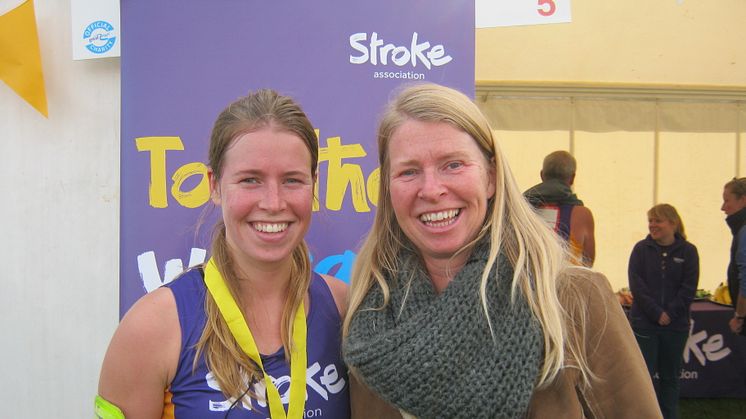
Press release -
South Harting stroke survivor finds their voice
South Harting resident Caroline Levitt, 49, is on the road to recovery after a stroke left her unable to say a single word in 2013.
Caroline, a mum of four, woke up at 5am one morning unable to move or speak. Her husband Alex noticed something wasn’t right and quickly dialled 999.
The stroke affected Caroline’s movement in the right side of her body and her speech.
Caroline’s husband, Alex, said: “Caroline’s stroke was a huge shock to the whole family. When she came out of hospital she was unable to say a single word for at least three months, and her right side was completely paralysed. With help from the Stroke Association, Caroline taught herself how to do everything again. From reading to writing, cooking with her left hand, and to even been able to speak again, she’s amazed us all.”
Despite her stroke, Carolinehas been determined to find new ways to communicate again. Caroline’s speech has made huge improvements, and she has gone on to set up a Forest School with her husband Alex, teaching young children about the outdoors on the farm where they live.
Caroline said: “Life is completely different since my stroke, but I’m not going to let it beat me. I’m taking my recovery one day at a time, and I’m so grateful to the Stroke Association for their help and support. In the future, I hope I can to do more in raising awareness of stroke, and helping other younger stroke survivors with their rehabilitation.”
Caroline is one of more than 350,000 people in the UK with aphasia, a communication disability which can affect people’s ability to speak, read, write, use numbers and understand but not their intelligence. Aphasia is caused by stroke, head injury or other neurological conditions.
Caroline says that one of her biggest challenges is that many people do not know enough about aphasia or how they can help people with the communication disability. After her stroke, Caroline didn’t have the confidence to leave the house.
Mandy Souter Communication Support Coordinator at the Stroke Association, said: “I’m so proud of Caroline and the incredible steps she’s made in her recovery. When we first met she had lost a lot of confidence, and she and Alex found it very difficult to adjust to their lives. Three years on, and Caroline’s doing so well. She should be so proud of everything she’s achieved.
“Having aphasia can be so frustrating because many stroke survivors know what to say, but are unable to make themselves understood. Seemingly ordinary tasks like buying a pint of milk or using money can feel very stressful, and it is easy to lose confidence. Many people with aphasia can feel very isolated as a result.
“If people working in shops, cafes, banks and a huge variety of other customer service roles know about the disability and follow a few of our simple tips, the barriers to communication can be start to be broken down.”
The Stroke Association is raising awareness of aphasia and how people in the community can help support stroke survivors affected by the condition. To support this campaign, you can go to stroke.org.uk/aphasia or search for #aphasia on social media.
Related links
Topics
A stroke is a brain attack which happens when the blood supply to the brain is cut off, caused by a clot or bleeding in the brain. There are around 152,000 strokes in the UK every year and it is one of the largest causes of disability. There are over 1.2 million people in the UK living with the effects of stroke.
Stroke Association is a charity. We believe in life after stroke and together we can conquer stroke. We work directly with stroke survivors and their families and carers, with health and social care professionals and with scientists and researchers. We campaign to improve stroke care and support people to make the best recovery they can. We fund research to develop new treatments and ways of preventing stroke. The Stroke Helpline (0303 303 3100) provides information and support on stroke. More information can be found at www.stroke.org.uk











